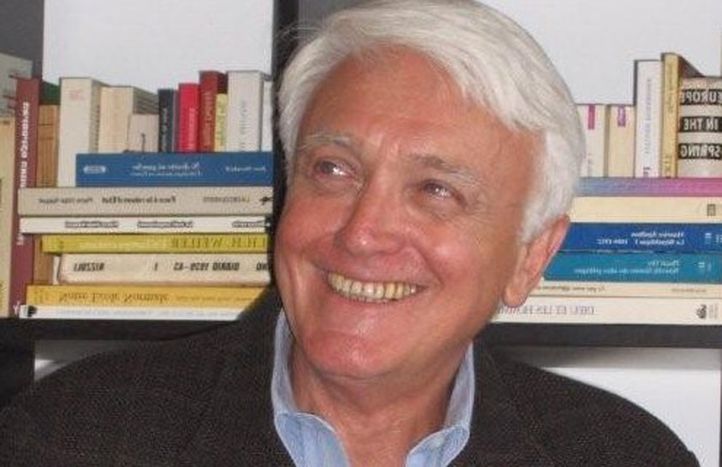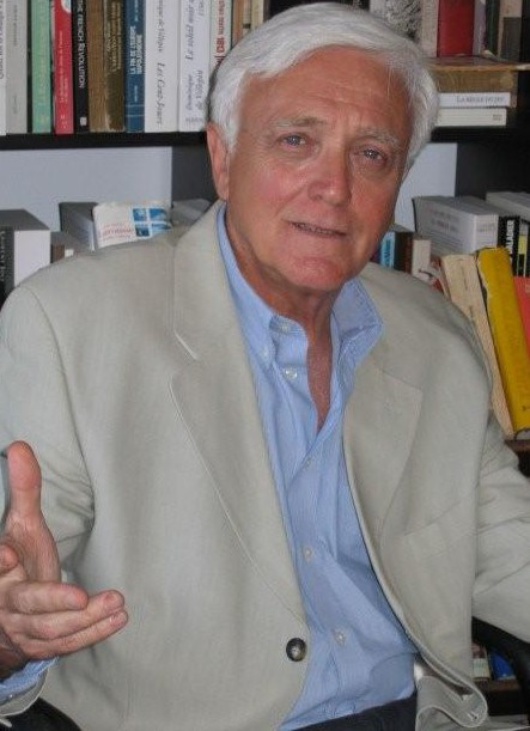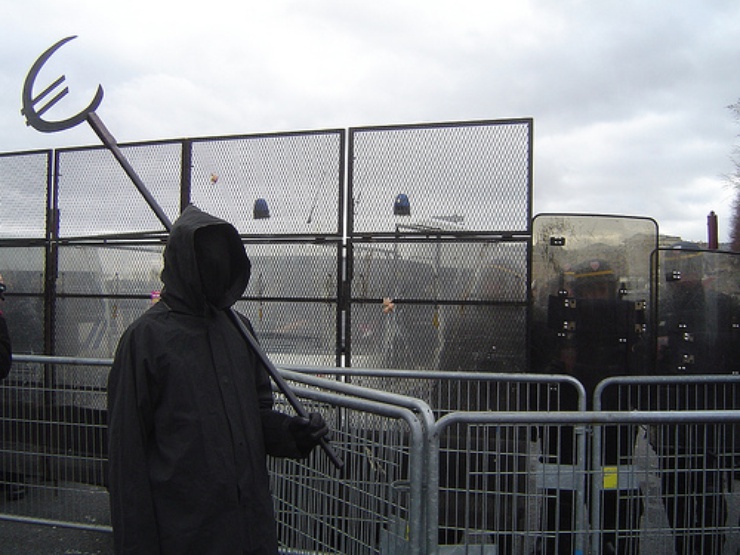
Elie Barnavi: 'Europe has lost her sex appeal and her men are weak’
Published on
Translation by:
Kate MartinThe Romanian-born 62-year-old historian and Israeli citizen on feeling European, why Europe is frigid and why the British are among the biggest supporters of Turkish membership
I wait for Elie Barnavi at the Cafe Litteraire in the VI arrondissement in Paris. The leather bound books and leather sofas feel a little over the top. It is October and, in a muddle of seasons, the Parisian weather offers a little sunshine in the middle of a wintery week. When Barnavi arrives he asks to move outside into the garden so he can smoke his pipe. Born in Bucharest in 1946, he moved to Tel Aviv when he was twelve or thirteen, and is now an Israeli citizen. ‘I spoke Romanian with my mother and Hebrew and Russian with my father, although I have forgotten Russian now.’
However, the books he publishes in France are written in French. For an Italian, they are rich, poetic and challenging. Just think Barthes or March Bloch: ‘From cathedrals to funeral pyres, universalist spirit to slavery, incredible baroque artwork to the Inquisition, scientific reason to witch hunts, progress to all-out war, democracy to bureaucracy, the dream of fraternity to the Russian Gulag, Beethoven to Auschwitz. This is Europe with her head in the clouds and blood at her feet.’
This historian and politician – he was the Israeli ambassador in France from 2000 to 2001 – is now a scientific advisor for the European museum in Brussels. Perched half way between insider and outsider, he writes about being European in lifestyle, choices and culture, but still having a foreign passport. ‘For most Jewish people Europe is home; it’s where they live but also where they die. In a way, my cultural roots are here. I am not European, but I feel European.’
Europe: bureaucratic, not sexy
 We meet just after the publication of L’Europe Frigide (‘Frigid Europe’, André Versaille editor). Given the title, my first question has to be, why frigid? ‘Europe no longer incites passion in her citizens. She has lost her sex appeal, is no longer exciting or arousing curiosity, since everything has become bureaucratic.’ Barnavi wrote this book to tell Europeans their own story. ‘Does Europe not realise that she has set the world an example that cannot be beaten? That on this blood-stained earth a union of free people was created from nothing, people who fought an impossible and inconceivable war?’ I confirm my lack of enthusiasm for Europe and how unrevolutionary I feel. ‘The problem is that Europe had already been constructed, men are weak and nobody is excited about it anymore because it already exists.’
We meet just after the publication of L’Europe Frigide (‘Frigid Europe’, André Versaille editor). Given the title, my first question has to be, why frigid? ‘Europe no longer incites passion in her citizens. She has lost her sex appeal, is no longer exciting or arousing curiosity, since everything has become bureaucratic.’ Barnavi wrote this book to tell Europeans their own story. ‘Does Europe not realise that she has set the world an example that cannot be beaten? That on this blood-stained earth a union of free people was created from nothing, people who fought an impossible and inconceivable war?’ I confirm my lack of enthusiasm for Europe and how unrevolutionary I feel. ‘The problem is that Europe had already been constructed, men are weak and nobody is excited about it anymore because it already exists.’
Is Europe heading in the wrong direction? ‘Frankly, Europe is dealing with things it should never have been concerned with - how can anyone get excited about quarrels over cheese made with unpasturised milk?’ The problem is that the ideology that ‘holds people together is being forgotten.’ I roll myself a cigarette, observing a man wearing a jacket and tie, braces and cufflinks, becoming ever more indignant as he speaks and smokes. ‘If we do business with ideology then it's all over. The most important thing is not the euro, but rather the creation of a shared destiny.’ According to Barnavi, the most grotesque example of this inability to give Europe a soul. 'If we do business with ideology then it's all over. The most important thing is not the euro, but rather the creation of a shared destiny.’ Neutrality angers Barnavi. ‘I would never have accepted a member into Europe who declared itself ‘neutral’. Neutrality doesn’t mean anything when you become part of a family and a community with a common fate.’
If Turkey had the social politics of Sweden

Discussing a community with a common fate, brings us to identity and borders -all the more important since the internal boundaries have been lowered. On this point, Barnavi is concise; Europe’s borders must be European. ‘This does not include Russia (huge and not entirely convinced), Israel or Turkey.’ This is obvious if you are trying to create a political Europe. If, however, Europe is simply an area for business, tourism and friendship, why not allow Turkey in and, at a push, even Israel? But then again, if Europe has a political meaning and if we want a European power, we need European borders. ‘The desire to include Turkey is inversely proportional to the desire to create Europe. This does not mean that there are not other means of diplomatic, economic and military co-operation,’ he continues. ‘This can even include the euro if people want it, but citizenship is different.’ History alone would be too restricting; geography alone would include too much.
Europe is not meant to have common borders with Caucasus or Iraq
But isn’t the problem with Turkey that they do not meet the political and social requirements? ‘No, not even if they had the social politics of Sweden. There are other boundaries. Europe is not meant to have common borders with Caucasus or Iraq. Pay attention here, the desire to include Turkey is inversely proportional to the desire to create Europe. It is not by chance that the British are among the biggest supporters of Turkish membership. They want a British Europe, or in other words, a free market area. Those who want an integrated Europe realise that there would be huge problems.’ According to Barnavi, the people feel it. ‘One of the reasons for the French ‘no’ in the 2005 vote on the constitutional treaty (now the Lisbon treaty - ed) was a real lack of understanding: not really knowing what they belong to and what they don’t.’
The conversation moves on beyond the subject of identity to the ‘cacophony’ that is European foreign policy. ‘It is certainly true that the world needs a second democratic power. It would be a good thing for Europe and for America. If it isn’t Europe it will be Putin or China.’ Barnavi has an appointment on the other side of town. He asks me about the underground metro system, which still baffles me, and others like me, despite our having lived in Paris for some time. And so I make the 62-year-old man walk half an hour to Saint Germain de Pres in the heart of Paris, where he regrets not taking a taxi.
Translated from Elie Barnavi: «L’Europa frigida»



